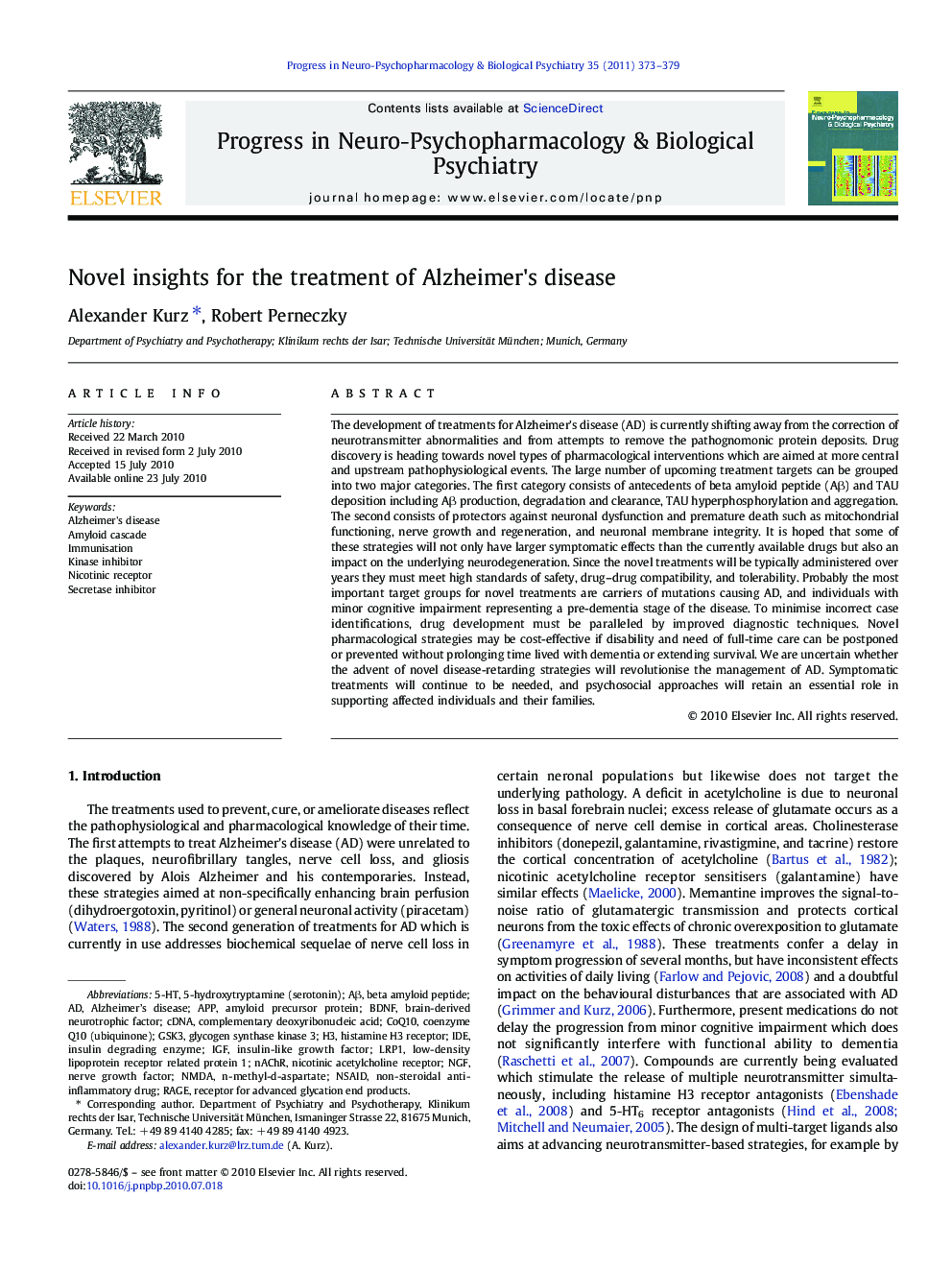| Article ID | Journal | Published Year | Pages | File Type |
|---|---|---|---|---|
| 5845135 | Progress in Neuro-Psychopharmacology and Biological Psychiatry | 2011 | 7 Pages |
The development of treatments for Alzheimer's disease (AD) is currently shifting away from the correction of neurotransmitter abnormalities and from attempts to remove the pathognomonic protein deposits. Drug discovery is heading towards novel types of pharmacological interventions which are aimed at more central and upstream pathophysiological events. The large number of upcoming treatment targets can be grouped into two major categories. The first category consists of antecedents of beta amyloid peptide (Aβ) and TAU deposition including Aβ production, degradation and clearance, TAU hyperphosphorylation and aggregation. The second consists of protectors against neuronal dysfunction and premature death such as mitochondrial functioning, nerve growth and regeneration, and neuronal membrane integrity. It is hoped that some of these strategies will not only have larger symptomatic effects than the currently available drugs but also an impact on the underlying neurodegeneration. Since the novel treatments will be typically administered over years they must meet high standards of safety, drug-drug compatibility, and tolerability. Probably the most important target groups for novel treatments are carriers of mutations causing AD, and individuals with minor cognitive impairment representing a pre-dementia stage of the disease. To minimise incorrect case identifications, drug development must be paralleled by improved diagnostic techniques. Novel pharmacological strategies may be cost-effective if disability and need of full-time care can be postponed or prevented without prolonging time lived with dementia or extending survival. We are uncertain whether the advent of novel disease-retarding strategies will revolutionise the management of AD. Symptomatic treatments will continue to be needed, and psychosocial approaches will retain an essential role in supporting affected individuals and their families.
Research Highlights⺠Novel strategies focus on upstream events of the amyloid cascade ⺠Targeting forerunners of Ab and TAU deposition could prove successful. ⺠Drug development must be paralleled by refined diagnosis. ⺠Psychosocial interventions need to be improved.
